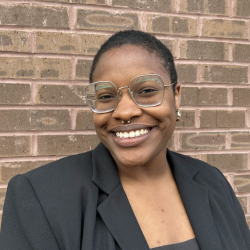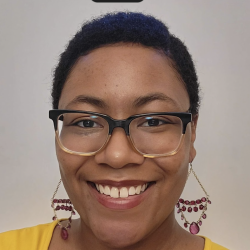
Multicultural Competence with Clients: If you’re a psychologist, marriage counselor, social worker, psychiatrist or clinical therapist, it’s important to have a level of multicultural competence with clients, as it allows you to understand your background and it opens talking to your client about differences between each other. As the world becomes more and more connected and we encounter people of all different backgrounds, it’s becoming increasingly important to have a level of multicultural competence with clients. Often people ask: what does it mean to have multicultural competence? Having multicultural competence with clients entails understanding your own background and experiences, and how that may differ from the person in front of you. As a psychologist, marriage counselor, social worker, psychiatrist and clinicians we want to do our best to help the client. Differences can affect the therapeutic process as each carries a level of stereotypes with them. By being aware of these differences, multicultural competence with clients can lead to talking about differences and build better understanding of your client.
To start building multicultural competence with clients, you must first understand your own background. Many people find the ADDRESSING model to be helpful. This model stands for: Age, Disability (born with), Disability (acquired), Religion, Ethnicity, Socioeconomic Status, Indigenous affiliation, Nationality, and Gender. Take a piece a paper and write down each thing and fill it out for yourself. After you’ve filled out each section write a little blurb about what each of those things mean to you and your experience with them. For example for a made up person:
- A (AGE): 37
- I’m always told that I’m old because of my age, even though there are people way older than me. I’ve got my life together for my age.
- D (DISABILITY, BORN): None
- D (DISABILITY, ACQUIRED):
- I don’t have any, but I’ve experienced it with my mother who is paralyzed because of stroke.
- R (RELIGION): Baptist
- People always think that we are crazy people and super religious; I’m not super familiar with religions that are not under the Christianity umbrella.
- E (ETHNICITY): Haitian
- People don’t know a lot about Haiti beyond the earthquake; very friendly people; people are afraid of black people; I’ve been harassed for being black. I would like to learn more about other cultures.
- S (SOCIOECONOMIC STATUS): Upper middle class
- My parents never had to worry about money; I have a good paying job and security. I’m not sure how it would be like to be poor or from lower SES.
- S (SEXUALITY): Pansexual
- People never never never understand what it means to be pan, even people in the LGBTQ+ community!
- I (INDIGENOUS STATUS) : None
- N (NATIONALITY): Haiti
- I love my country, but it’s so different than American culture.
- G (GENDER): Male
- It’s really easy to get away with things as a guy. Men are suppose to be tough and not show many emotions.
Having this laid out gives you a framework of who you are and the experiences you have had. It also help’s you to refine what it means to you to be part of each category. It also allows you to understand that even though you may have the same background as another person, your lived experiences are completely different. The next step in multicultural competence is pointing out the differences and starting the conversation. For many people of backgrounds that have been discriminated against, oppressed, and shunned, talking about these things can be difficult. It is an ever-present experience, but often within the United States and other countries, conversations about differences are not something we do. Be strategic when to bring it up. Clients may use lines such as “in my culture” or “being x means”, “people never understand x”. Here are a couple lines to start the conversation from there:
- “How is it to work with a person who is<your identifiers>?”
- “So I’m not familiar with <insert identity> can you help me to understand more.
- How does your <insert identity> view <insert client’s reason for seeking treatment>.
- How would people of <insert identity> help with <insert issue>.
This can feel awkward on the part of the therapist as it is sometimes taught to clinicians to not reveal personal information. Reveal what is comfortable. Often client may be taken back by opening up a conversation about difference and may not know how to respond, but it leaves space for them to bring it up. People may also try to explain their experiences through their identifiers. It’s important to be aware of how your identity matches against your client’s identity and what that means. Even doing this exercise with a client may be a good bonding experience and can have them talk about their experience and what it means to work with yourself.
Once the conversation has begun, it’s important to remain open! Never jump to a conclusion or make an assumption; whether it be that a person is like you or different than you. If you make a mistake, apologize and own up to it. Ask the person to explain what the mistake was so that you can learn from it. It’s also important to do research on your own, particularly if you are not familiar with your client’s background (cultural identity, ethnicity, religion, disability etc) The ADDRESSING model provides a useful framework for screening and understanding a person’s background.
To locate a multicultural competent therapist near me call a therapist at the Center for Growth 215 922 5683 x 100 or if you prefer you can self schedule an inperson or virtual codependency therapy appointment. For your convenience we have 5 physical offices and provide virtual therapy services in Florida, Georgia, Pennsylvania, New Jersey, New Mexico and Virginia.
Ocean City Therapy Office
360 West Ave, Floor 1, Ocean City, NJ 08226Mechanicsville Therapy Office
9044 Mann Drive, Mechanicsville Virginia, 23116Society Hill Therapy Office
233 S. 6th Street, C-33, Philadelphia PA 19106Art Museum / Fairmount Therapy Office
2401 Pennsylvania Ave, Suite 1a2, Philadelphia PA 19130Santa Fe Therapy Office, 2204 B Brothers Road, Santa Fe, New Mexico, 87505
Telemedicine: We have therapists who are licensed to work in Florida, Georgia, New Jersey, Virginia New Mexico and Pennsylvania
You deserve the best therapist possible. Our special sauce for helping you achieve your goal, begins with matching you with the right therapist. Check out our GUARANTEE.
Therapy Services Offered:
Individual Counseling and therapy
Couples Counseling and marriage counseling
Teen Therapy and Adolescent Therapy and tweens and child counseling
Family Therapy and multi-generational counseling
Art Therapy and Counseling no art skills needed
ADHD Therapyand ADD, Dyslexia, Autism, Tourettes counseling
Anxiety, Panic, OCD Therapy and worry and fear support
Breaking the cycle of Codependency and being your own person
Overcoming Chronic Illness and Chronic Pain
Depression Therapy and sadness, gloom, and upset support
Grief Therapy and loss, End of A Relationship, rejections, pregnancy loss and therapy
Mindfulness Based Therapy and spirituality based therapy
Sex Therapy and sexual function & dysfunction, sex addiction, sexual orientation and gender identity support
Shame and Blame
Trauma Therapy both emotional and sexual abuse, complex trauma, PTSD counseling
Divorce support
Affairs, Infidelity, Unfaithful, Cheating counseling
Parenting therapy
Personality disorder treatments
Anger Management Therapy
Setting Boundaries and identifying ones own Core Beliefs
Just name some of the Mental Health issues that we work with. Our goal is to help you Change and Achieve Your Dreams
















